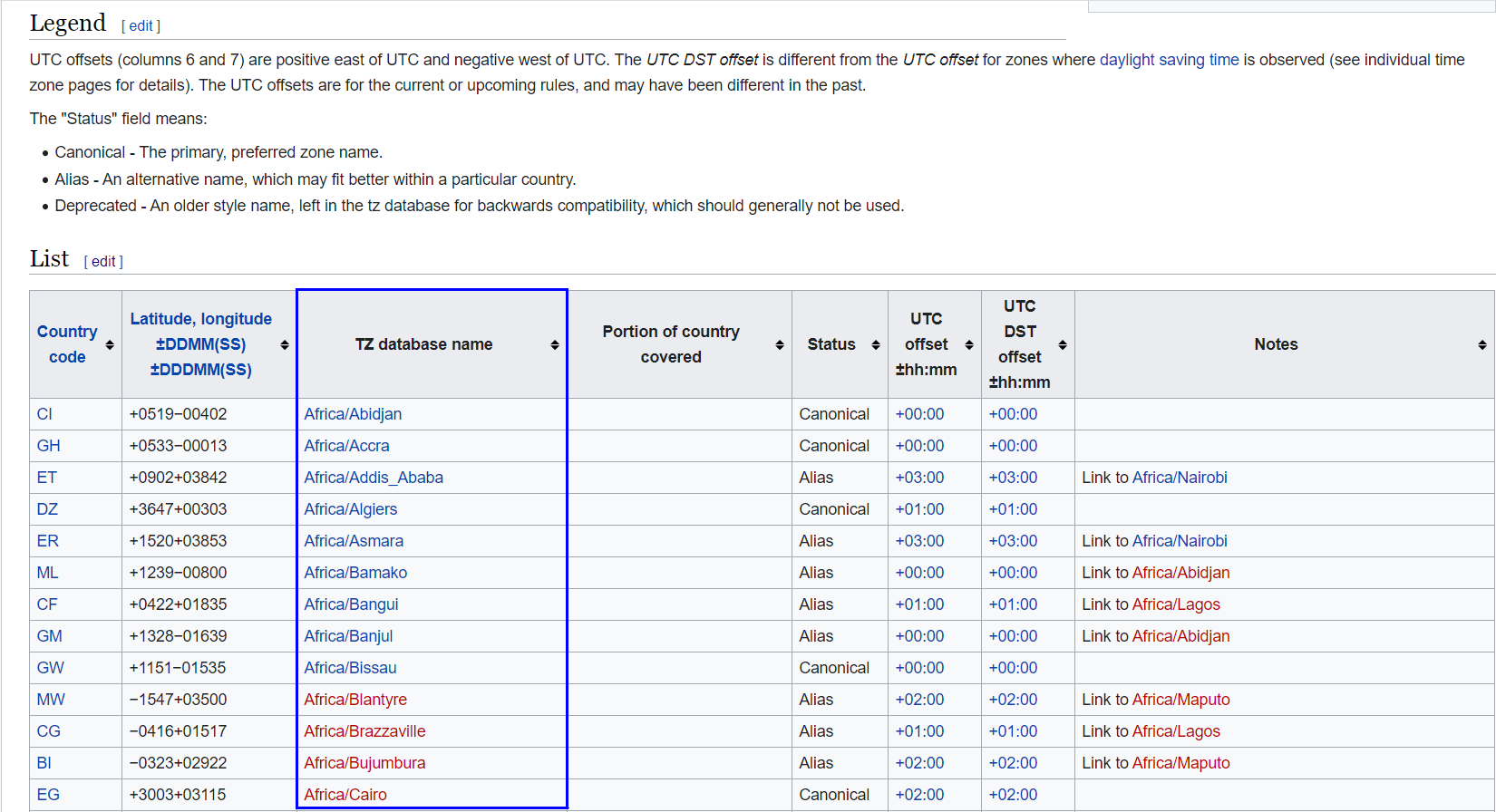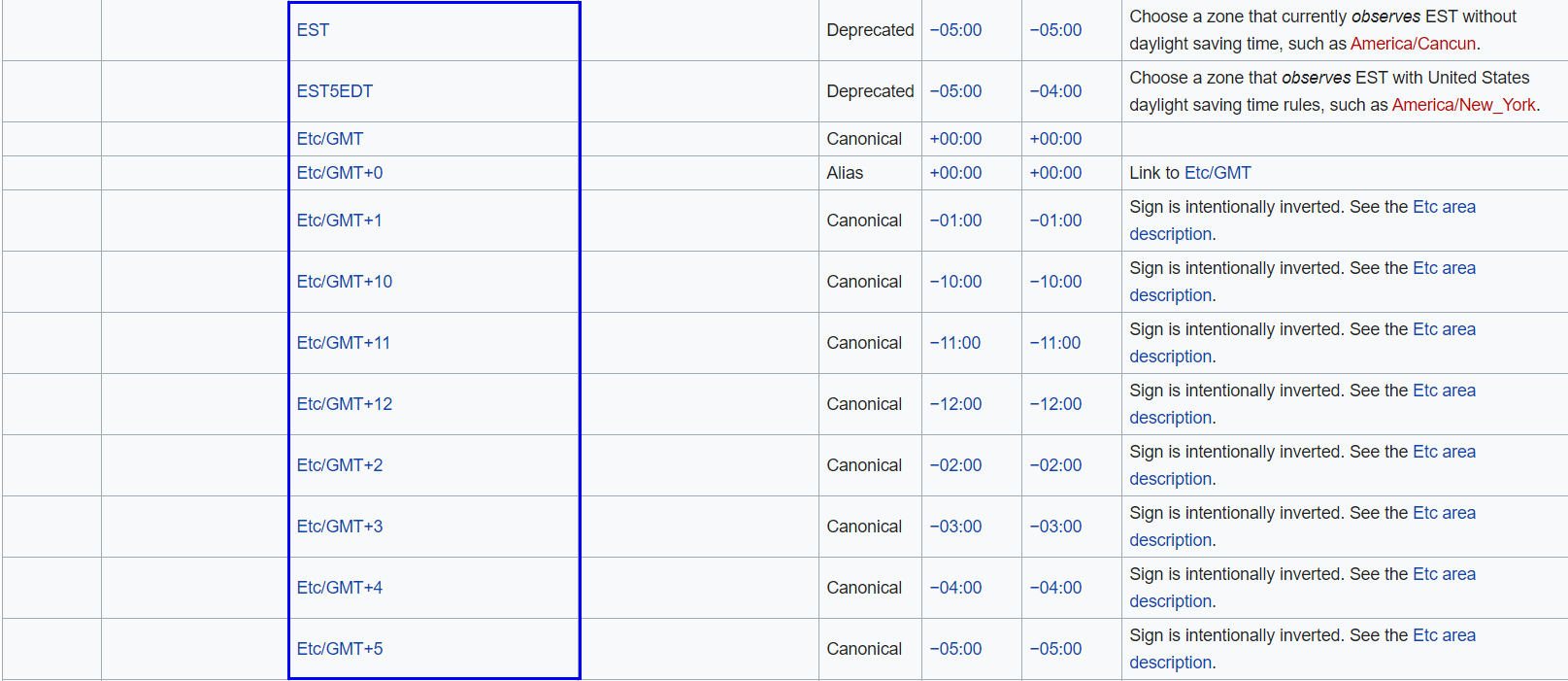|
How to: |
Coordinated Universal Time (UTC) is the time standard commonly used around the world. To convert UTC time to a local time, a certain number of hours must be added to or subtracted from the UTC time, depending on the number of time zones between the locality and Greenwich, England (GMT).
DT_TOLOCAL converts UTC time to local time.
Converting timestamp values from different localities to a common standard time enables you to sort events into the actual event sequence.
This function requires an IANA (Internet Assigned Numbers Authority) time zone database names (expressed as 'Area/Location') as a parameter. You can find a table of IANA TZ database names on Wikipedia at https://en.wikipedia.org/wiki/List_of_tz_database_time_zones, as shown in the following image.

If you do not know what Area and Location corresponds to your time zone, but you do know your offset from GMT, or your legacy time zone name (such as EST), scroll down in the table. There are TZ database names that correspond to these time zone identifiers, as shown in the following image.

Note: If you use a standard IANA time zone database name in the form 'Area/Location' (for example, 'America/New_York'), automatic adjustments are made for Daylight Savings Time. If you use a name that corresponds to an offset from GMT or to a legacy time zone name, it is your responsibility to account for Daylight Savings Time.
